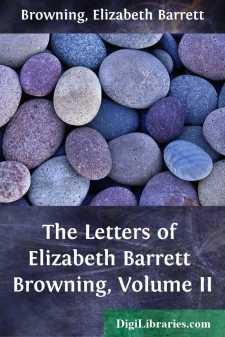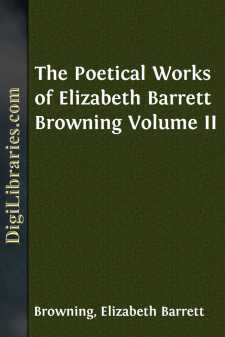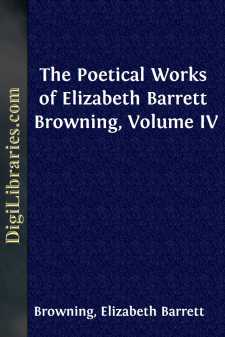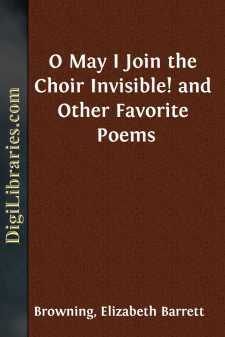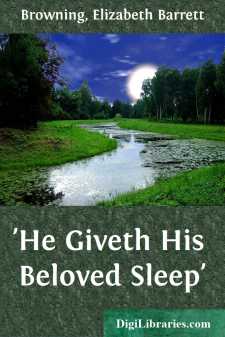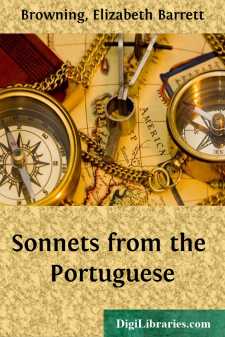Categories
- Antiques & Collectibles 13
- Architecture 36
- Art 48
- Bibles 22
- Biography & Autobiography 813
- Body, Mind & Spirit 141
- Business & Economics 28
- Children's Books 12
- Children's Fiction 9
- Computers 4
- Cooking 94
- Crafts & Hobbies 4
- Drama 346
- Education 46
- Family & Relationships 57
- Fiction 11826
- Games 19
- Gardening 17
- Health & Fitness 34
- History 1377
- House & Home 1
- Humor 147
- Juvenile Fiction 1873
- Juvenile Nonfiction 202
- Language Arts & Disciplines 88
- Law 16
- Literary Collections 686
- Literary Criticism 179
- Mathematics 13
- Medical 41
- Music 40
- Nature 179
- Non-Classifiable 1768
- Performing Arts 7
- Periodicals 1453
- Philosophy 64
- Photography 2
- Poetry 896
- Political Science 203
- Psychology 42
- Reference 154
- Religion 513
- Science 126
- Self-Help 83
- Social Science 81
- Sports & Recreation 34
- Study Aids 3
- Technology & Engineering 59
- Transportation 23
- Travel 463
- True Crime 29
Elizabeth Barrett Browning
Elizabeth Barrett Browning (1806-1861) was a prominent English poet of the Victorian era, renowned for her deeply emotive and innovative works. Her most famous collection, "Sonnets from the Portuguese," contains some of the most exquisite love poetry in English literature, inspired by her courtship with fellow poet Robert Browning, whom she married in 1846. Despite chronic illness, she produced a substantial body of work, including the politically charged "Aurora Leigh," a novel in verse that addresses issues of gender, class, and the role of women in society.
Author's Books:
Sort by:
CHAPTER VII Since they first settled in Florence the Brownings had made no long or distant expeditions from their new home. Their summer excursions to Vallombrosa, Lucca, or Siena had been of the nature of short holidays, and had not taken them beyond the limits of Tuscany. Now they had planned a far wider series of travels, which, beginning with Rome, Naples, Venice, and Milan, should then be extended...
more...
THE ROMAUNT OF MARGRET. Can my affections find out nothing best,But still and still remove? Quarles. I.I plant a tree whose leafThe yew-tree leaf will suit:But when its shade is o'er you laid,Turn round and pluck the fruit.Now reach my harp from off the wallWhere shines the sun aslant;The sun may shine and we be cold!O hearken, loving hearts and bold,Unto my wild romaunt.Margret, Margret....
more...
I. Of English blood, of Tuscan birth, What country should we give her? Instead of any on the earth, The civic Heavens receive her. II. And here among the English tombs In Tuscan ground we lay her, While the blue Tuscan sky endomes Our English words of prayer. III. A little child!—how long she lived, By months, not years, is reckoned: Born in one July, she survived Alone to see a second. IV....
more...
O MAY I JOIN THE CHOIR INVISIBLE! O may I join the choir invisibleOf those immortal dead who live againIn minds made better by their presence; liveIn pulses stirred to generosity,In deeds of daring rectitude, in scornOf miserable aims that end with self,In thoughts sublime that pierce the night like stars,And with their mild persistence urge men’s mindsTo vaster issues. So to live is heaven:To...
more...
THE SLEEP Of all the thoughts of God that are Borne inward unto souls afar, Along the Psalmist’s music deep, Now tell me if that any is, For gift or grace, surpassing this— ‘He giveth His beloved, sleep’! What would we give to our beloved? The hero’s heart to be unmoved, The poet’s star-tuned harp, to sweep, The patriot’s voice, to teach and rouse, The monarch’s crown, to light the...
more...
I I thought once how Theocritus had sungOf the sweet years, the dear and wished-for years,Who each one in a gracious hand appearsTo bear a gift for mortals, old or young:And, as I mused it in his antique tongue,I saw, in gradual vision through my tears,The sweet, sad years, the melancholy years,Those of my own life, who by turns had flungA shadow across me. Straightway I was ’ware,So weeping, how a...
more...


